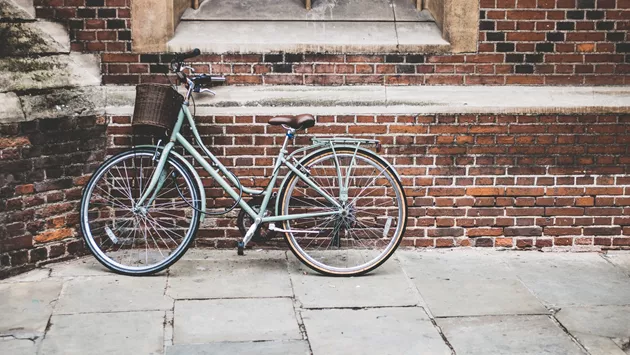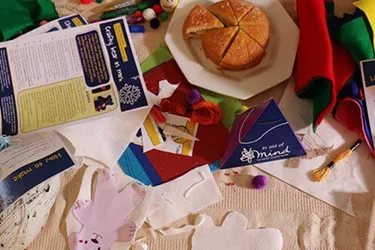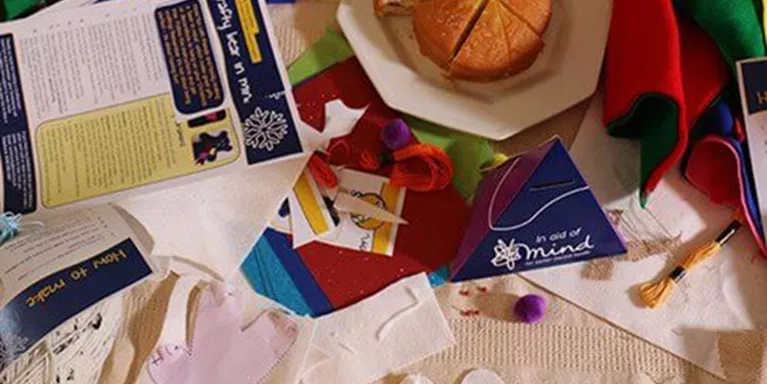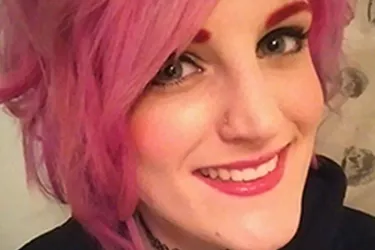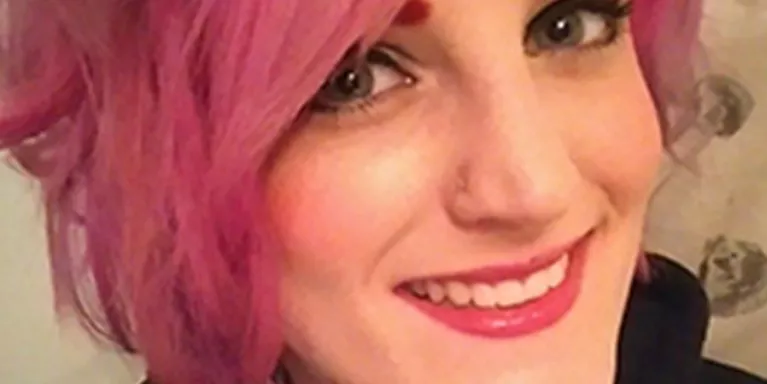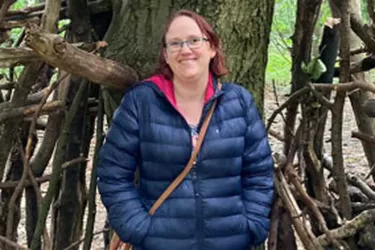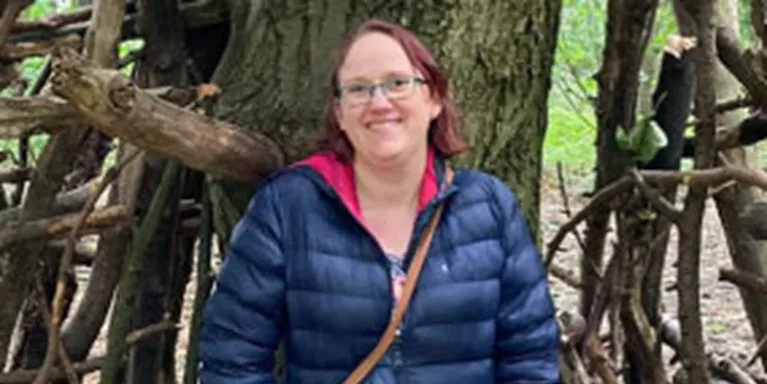Crafting together for better mental health
Jayanthi blogs about experiencing depression and how she stays well and fundraises through social crafting.
Jayanthi is a mental health campaigner and crafting enthusiast. She is a mother of two, digital infrastructure advisor and wannabe creativepreneur. Find out more about her at http://maidenaunt.com/
I’m almost embarrassed to admit it now, but before my first diagnosis of depression I didn’t even realise that it was a “proper” illness. It was someone at work who first noticed that something wasn’t right with me because I’d cry so often. I’d tell him I was fine and that I just needed to work longer hours. I thought that I should be able to cope as there were people working much harder that seemed fine. I didn’t want to feel so negative when on the outside I appeared to have everything.
I went to see my GP who asked me a few questions before diagnosing me as “moderately depressed”. I felt like I’d failed at being properly depressed and that I was just being a bit rubbish. Looking for more information, I googled “depression” when I got home. Thankfully, the Mind website came up and it was an invaluable resource in understanding what mental illness actually is and the different treatment options available. However, I felt let down that both the education and the health systems had failed to teach me anything about mental health.
"My line manager cleared his whole afternoon to talk to me… it was such a relief to open up and that he was so understanding."
I didn’t want to tell anyone that I had depression as I felt like it would be admitting that I wasn’t strong enough to cope. However, I couldn’t hide how bad I felt and I was crying in the office on a regular basis. My line manager cleared his whole afternoon schedule to talk to me. I wept pretty much the whole time but it was such a relief to open up and that he was so understanding.
Once I started to talk to other people at work about my depression, many shared their own experiences and a whole informal network of support welcomed me in. I was amazed by how many people were affected by mental illness either directly or through someone close to them.
I realised that the continued stigma surrounding mental illness stops people from knowing what the symptoms are. Even worse, both the stigma and lack of awareness stop people seeking help. This made me decide that I wanted to be active in supporting Mind’s initiatives both in my workplace and through fundraising. A key part of this was being open about my own diagnosis.
"I realised that the continued stigma surrounding mental illness stops people from knowing what the symptoms are, and even worse, stop people seeking help."
I feel very lucky to work for a firm, Frontier Economics, that is so forward thinking. The company is owned and run by our employees and this allows tremendous scope for individuals to create and maintain a working environment that supports and values our people.
I used this opportunity to start a wellbeing initiative that has included a group of people organising mental health awareness training for every single person in our firm (around 150 at the time), participating in World Mental Health Day, creating a wellbeing room in the office for people to take time out, and greater mental health awareness in developing and applying our HR policies. The wellbeing initiative continues to thrive, with an additional focus on happiness and work-life balance. I am excited about the change that Mind’s latest report ‘Thriving at Work’ may bring to the workplace too.
"As well as being a fun way to raise money, Crafternoons provide a safe environment for people to talk about their own experiences of mental health and to ask what mental illness really is."
I started fundraising for Mind in 2012 when I ran the Great South Run, and Frontier matched the money I raised. Including a personal story in my sponsorship requests was a great way of telling people what Mind does. To raise awareness further and raise more money, I shared by love of making things by organising a Crafternoon at home with around 20 friends to make Christmas crackers, eat mini Christmas puddings and drink mulled wine in our cosy jumpers and slippers. I was inspired by a woman at a craft fair I had attended earlier that year. She had set up a table by her stall, creating a tiny haven of calm. Despite the bustle, shoppers stopped to enjoy the simple pleasure of embroidering together.
Since then, I have organised Crafternoons every Christmas (except for the one a few weeks after my first son was born), including our first one in the office last year. As well as being a fun way to raise money that requires less running around in the cold, Crafternoons provide a safe environment for people to talk in, so I was delighted when Mind took the idea nationwide. In the Crafternoons I have organised, we always have a good natter. I think that by supporting Mind and talking about its work, people feel more able to talk about their own experiences of mental health and to ask what mental illness really is.
"I find it so energising to let go of my perfectionist standards in order to scribble, scrunch, rip, daub and embrace mistakes as part of the creative process."
I now see myself as a mental health campaigner and I am passionate about crafting in a social context. People often talk about the mindfulness of crafting – for me, the delight and mental health benefits come from using another part of my brain to achieve something which is very different to my day job. I find it so energising to let go of my perfectionist standards in order to scribble, scrunch, rip, daub and embrace mistakes as part of the creative process. And I also get something pretty that I can enjoy in my home or give as a present. Deciding to develop this beyond just a hobby is allowing me to achieve a greater balance in my life between my career and family life. I also love the sense of connection from a shared experience - my dream is that people will experience all of this with craft.
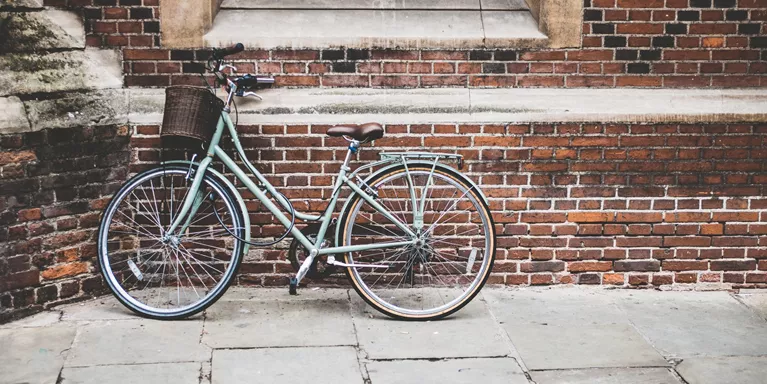
Get involved
There are lots of different ways that you can support us. We're a charity and we couldn't continue our work without your help.
Share your story with others
Blogs and stories can show that people with mental health problems are cared about, understood and listened to. We can use it to challenge the status quo and change attitudes.









